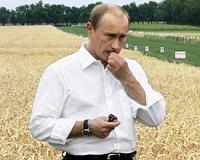| . |  |
. |
Helsinki (AFP) Sept 6, 2010 Forces outside China's traditional power bases are increasingly shaping the country's foreign policy, pushing for more international participation, the SIPRI think tank said in a report Monday. "These are still groups on the margins. But it is significant that the top leadership now has to take into account diverse views," the Swedish institute's China programme director Linda Jakobson told AFP in Helsinki, where the report was launched. New pressure groups like state-owned and even some large privately-owned enterprises, local governments, expert advisors, as well as public input via media and online communities are all being heard to some extent in the inner sanctum of the Communist Party, the report said. Jakobson noted that Chinese policy creation is still shrouded in secrecy, so it is extremely difficult to gauge how much pressure these new groups are able to put on the traditional power bulwarks of the Communist Party, the State Council and the People's Liberation Army. Nonetheless, this development points to the fact that China's ruling party is no longer a monolithic entity, but one being pulled in different directions, the report said. These rising pressure groups are able to make an impact not only through traditional channels such as personal networks, but increasingly by writing newspaper columns, blogs, making public speeches and even through television debates. Jakobson said these channels are no longer entirely closed off to the public, and that China is transforming into a country where a degree of pluralism and public debate is possible. "The government and the Party do their utmost to control public opinion, but because of these omni-directional forces at play, they don't want citizens to be dissatisfied with foreign policy especially in times of crisis," she said. "If netizens think that Chinese leaders are bowing to pressure from Western leaders, it's not a large step to netizens questioning whether they are capable of leading," she added. SIPRI's report said that these new interest groups are especially eager to see China more strongly defend its interests on the global stage, which would involve becoming more active internationally. However, the report outlines a scenario where these new forces are engaged in a political tug-of-war with traditional political structures that aim to avoid an overreliance on world markets. For example, the report said that China's ministry of state security fears an influx of Western values "will make it more difficult for the Communist Party to dominate public discourse on questions concerning human rights, transparency and accountability." Jakobson said that Western countries should approach this schism by seeking to allay fears that a more open China will result in a more vulnerable Chinese state. "We have to persistently engage them to dispel these suspicions, but at the same time we can't just give them carte blanche to stipulate the conditions for engagement," said Jakobson. SIPRI is an independent international institute dedicated to research into conflict, armaments, arms control and disarmament. SIPRI is named as one of the world's leading think tanks in Foreign Policy magazine's Think Tank Index.
Share This Article With Planet Earth
Related Links Learn about the Superpowers of the 21st Century at SpaceWar.com Learn about nuclear weapons doctrine and defense at SpaceWar.com
 'Where is the reset?': sceptical Putin asks in interview
'Where is the reset?': sceptical Putin asks in interviewMoscow (AFP) Aug 30, 2010 Russian Prime Minister Vladimir Putin said on Monday he wanted to believe in the much-vaunted "reset" in ties between Moscow and Washington but indicated he was somewhat sceptical about the US administration's intentions. He voiced unease about US plans for a missile defence shield in Europe, saying ongoing talks with several European countries on hosting missile interceptors ran counter to ... read more |
|
| The content herein, unless otherwise known to be public domain, are Copyright 1995-2010 - SpaceDaily. AFP and UPI Wire Stories are copyright Agence France-Presse and United Press International. ESA Portal Reports are copyright European Space Agency. All NASA sourced material is public domain. Additional copyrights may apply in whole or part to other bona fide parties. Advertising does not imply endorsement,agreement or approval of any opinions, statements or information provided by SpaceDaily on any Web page published or hosted by SpaceDaily. Privacy Statement |